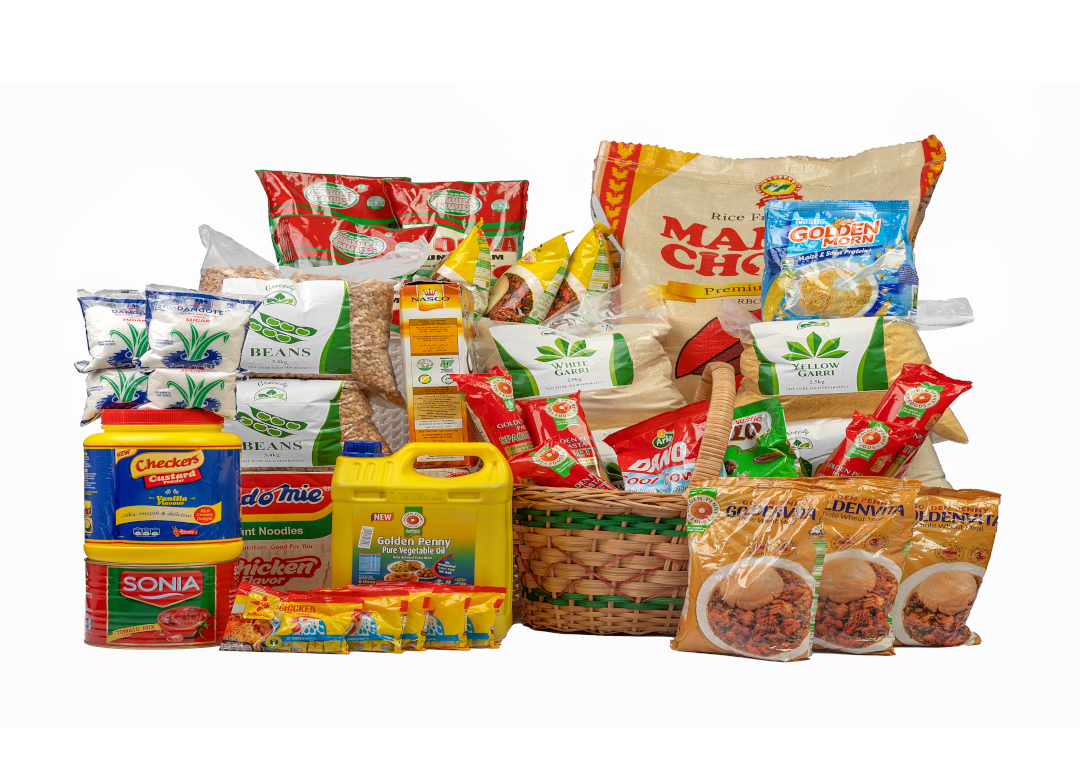Indomie noodles are a household favorite across Nigeria, loved for their convenience, affordability, and delightful taste. The popularity of Indomie presents a lucrative business opportunity for those looking to venture into wholesale distribution. If you’re considering starting an Indomie wholesale business in Nigeria, this guide will walk you through everything you need to know, from startup costs to profitability, and essential steps to get started.

Why Choose the Indomie Wholesale Business?
High Demand and Market Penetration
Indomie noodles enjoy high demand across Nigeria, making them a staple in both urban and rural households. This consistent demand ensures a steady market for wholesalers.
Brand Trust and Loyalty
Indomie is a well-established brand with a strong reputation for quality. Consumers trust the brand, which translates to repeat purchases and loyal customers for your business.
Wide Product Range
Indomie offers a variety of flavors and pack sizes, catering to diverse consumer preferences. This variety allows you to target different market segments and maximize sales.
Read Also: How to Become a Distributor for Indomie Noodles: A Step-by-Step Guide
How Much Do I Need to Start an Indomie Business in Nigeria?
Starting an Indomie wholesale business requires a significant initial investment. Here is a breakdown of the potential costs:
Initial Capital Breakdown
- Business Registration:
- Registering your business with the Corporate Affairs Commission (CAC): ₦10,000 – ₦50,000
- Warehouse Rental:
- Monthly rent for a medium-sized warehouse: ₦100,000 – ₦300,000
- Security deposit (usually 3-6 months upfront): ₦300,000 – ₦1,800,000
- Initial Stock Purchase:
- Bulk purchase of Indomie noodles (variety of flavors and sizes): ₦1,000,000 – ₦5,000,000
- Staff Salaries:
- Monthly salaries for warehouse staff, salespeople, and drivers: ₦150,000 – ₦500,000
- Transportation:
- Purchase of delivery vehicles: ₦2,000,000 – ₦5,000,000 per vehicle
- Alternatively, initial leasing costs: ₦100,000 – ₦300,000 per month
- Operational Costs:
- Utilities (electricity, water, internet): ₦50,000 – ₦100,000 per month
- Office supplies and miscellaneous expenses: ₦20,000 – ₦50,000 per month
- Marketing and Promotion:
- Initial marketing and advertising: ₦50,000 – ₦200,000
Total Estimated Initial Capital:
- Small-scale operation: ₦1,500,000 – ₦3,000,000
- Medium-scale operation: ₦5,000,000 – ₦10,000,000
- Large-scale operation: ₦10,000,000 and above
How Profitable Is the Indomie Business in Nigeria?
The Indomie business can be highly profitable due to several factors:
High Turnover Rate
With the high demand for Indomie noodles, you can expect a fast turnover of stock. This rapid sales cycle means you can reinvest profits quickly and grow your business.
Competitive Pricing
As a wholesaler, you can purchase Indomie noodles in bulk at discounted rates, allowing you to offer competitive prices to retailers while maintaining healthy profit margins.
Brand Loyalty
The strong brand loyalty associated with Indomie ensures repeat purchases. Consumers are more likely to choose a trusted brand, reducing the risk of unsold inventory.
Profit Margins
Profit margins in the wholesale business can range from 10% to 30%, depending on your pricing strategy and operational efficiency. For example, if you invest ₦5,000,000 in stock, you could potentially earn ₦500,000 to ₦1,500,000 in profits.
Steps to Start an Indomie Wholesale Business in Nigeria
1. Conduct Market Research
Understanding the market is crucial before starting your business. Identify your target customers, analyze competitors, and gauge the demand for Indomie noodles in your area.
Key Research Areas:
- Consumer Preferences: What flavors and pack sizes are most popular?
- Competitor Analysis: Who are your main competitors, and what are their strengths and weaknesses?
- Market Trends: Are there any emerging trends in the instant noodles market?
2. Develop a Business Plan
A well-thought-out business plan is essential for success. It should outline your business goals, target market, pricing strategy, and financial projections.
Essential Elements of a Business Plan:
- Executive Summary: An overview of your business and its objectives.
- Market Analysis: Insights from your market research.
- Marketing Strategy: How you plan to attract and retain customers.
- Operational Plan: Details of your distribution logistics, including storage and transportation.
- Financial Plan: Budget, funding sources, and profit projections.
3. Register Your Business
Register your business with the Corporate Affairs Commission (CAC) to operate legally. This process involves choosing a business name, completing the necessary forms, and paying the required fees.
Registration Steps:
- Choose a Business Name: Ensure it is unique and reflective of your business.
- Complete Registration Forms: Available on the CAC website or at their offices.
- Pay Registration Fees: Fees vary based on the type of business structure.
4. Secure Initial Funding
Starting a wholesale business requires significant capital. Explore various funding options, such as personal savings, bank loans, or investors.
Funding Sources:
- Personal Savings: The most straightforward option, but may not be sufficient.
- Bank Loans: Approach banks for business loans tailored to SMEs.
- Investors: Seek out investors willing to fund your business in exchange for equity or a return on investment.
5. Partner with Indomie
To become an official Indomie distributor, you must establish a partnership with Dufil Prima Foods Plc, the manufacturer of Indomie noodles. Reach out to their distribution department to express your interest and inquire about the application process.
Partnership Steps:
- Contact Dufil Prima Foods: Visit their official website for contact details.
- Submit Application: Complete and submit the distributor application form.
- Meet Requirements: Ensure you meet their criteria, which may include financial stability, storage capacity, and distribution network.
6. Set Up Your Warehouse
Choose a strategic location for your warehouse that is accessible and close to your target market. Ensure the warehouse is secure, spacious, and equipped to handle large quantities of stock.
Key Considerations:
- Location: Choose a location that is easily accessible for deliveries and close to your target market.
- Security: Implement security measures to protect your stock.
- Storage Conditions: Maintain optimal storage conditions to preserve product quality.
7. Hire Essential Staff
Recruit a small team of reliable staff for warehouse operations, sales, and delivery. Advertise positions on job portals and use local employment agencies for faster hiring.
Essential Staff:
- Warehouse Workers: For stock handling and inventory management.
- Sales Representatives: To manage retailer relationships and drive sales.
- Delivery Drivers: For timely deliveries to retailers.
8. Purchase Initial Stock
Once your partnership with Indomie is confirmed, place your first order for inventory. Purchase a variety of flavors and package sizes to cater to different customer preferences.
Inventory Management Tips:
- Order Variety: Stock different flavors like Chicken, Onion Chicken, and Oriental Fried Noodles.
- Monitor Stock Levels: Use inventory management software to track stock levels and avoid shortages.
- Storage Conditions: Maintain optimal storage conditions to preserve product quality.
9. Develop a Marketing Strategy
Effective marketing is essential to attract retailers and customers to your wholesale business. Utilize various marketing strategies to build brand awareness and drive sales.
Marketing Strategies:
- Online Presence: Create a website and social media profiles to showcase your business.
- Promotions: Offer discounts and special promotions to attract new customers.
- Networking: Build relationships with retailers, wholesalers, and other distributors.
- Customer Service: Provide excellent customer service to retain customers and encourage word-of-mouth referrals.
10. Build Relationships with Retailers
Your success as a wholesaler depends on your relationships with retailers. Develop strong partnerships with supermarkets, grocery stores, and small shops to ensure a steady demand for your products.
Relationship-Building Tips:
- Regular Communication: Keep in touch with retailers to understand their needs and address any concerns.
- Timely Deliveries: Ensure timely deliveries to maintain trust and reliability.
- Competitive Pricing: Offer competitive prices to attract and retain retailers.
11. Monitor and Improve Your Operations
Continuously monitor your business operations to identify areas for improvement. Analyze sales data, gather customer feedback, and adjust your strategies accordingly to stay ahead of the competition.
Monitoring Tools:
- Sales Reports: Track sales performance and identify top-selling products.
- Customer Feedback: Collect feedback from retailers and customers to improve your service.
- Market Trends: Stay updated on industry trends to adapt to changing market conditions.
Read Also: List of Provision Items to Stock Up On in Nigeria
Conclusion
Starting an Indomie wholesale business in Nigeria is a lucrative venture that requires careful planning, significant investment, and strategic execution. By following the steps outlined in this guide, you can establish a successful wholesale business and capitalize on the high demand for Indomie noodles. Remember, the key to success lies in understanding the market, building strong partnerships, and continuously improving your operations. With dedication and hard work, you can become a leading Indomie wholesaler in your area and enjoy the financial benefits that come with it.







